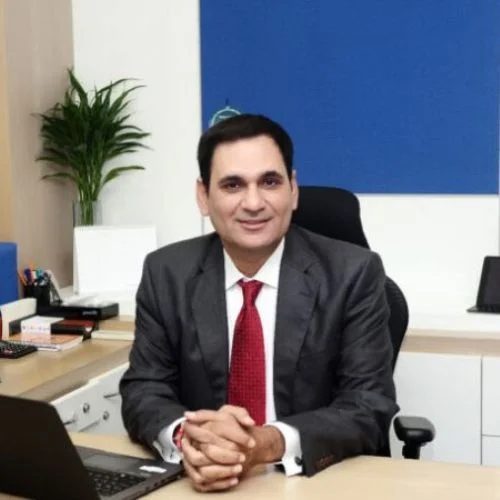Both Nayar and Banga have invested a significant amount of their personal capital in the fund as sponsor commitments. Nayar, a veteran of banking and private equity, having spent a combined four decades in these businesses, said that he did not want to invest in startups as an angel investor or a family office and wanted to create an institutional setup to attract high-quality capital.
Sorin Investments, a tech fund co-founded by private equity veteran Sanjay Nayar and Angad Banga of Hong Kong-based Caravel group, has raised $100 million in the first close of its maiden fund from a clutch of family offices, Nayar and Banga said in an interview.
The fund will aim to raise as much as $130 million, with a greenshoe option of $30 million and has begun evaluating investment opportunities. The fund’s first close saw participation from KKR co-founder Henry Kravis and Hero Enterprise chairman Sunil Kant Munjal and a few other global and Indian family offices.
“We’ve got seven to eight families to invest in the first close of the fund, both local and international, including Henry Kravis and Sunil Munjal. We will be investing from early series A to early series C,” said Nayar.
Both Nayar and Banga have invested a significant amount of their personal capital in the fund as sponsor commitments. Nayar, a veteran of banking and private equity, having spent a combined four decades in these businesses, said that he did not want to invest in startups as an angel investor or a family office and wanted to create an institutional setup to attract high-quality capital.
“Creating a fund structure gives you the flexibility of attracting high-quality capital, not just two or three families. In a fund structure, you can build a really institutionalised professional team and give them significant ownership. We don’t want to be seen as some kind of a small family office,” he said.
The fund will invest $2-10 million and will look to create a portfolio of about a dozen investments. The Sorin fund comes at a time the Indian startup ecosystem is going through a churn amid a global funding winter, but Nayar believes this trend will be short-lived.
“There is a so-called winter in the tech industry, but I don’t think that is an issue at all and I believe the summer will come pretty quickly because India is one of the destinations where capital is bound to come back. You’re going to see a lot of capital come into India,” he said.
Given Nayar’s background in financial services, fintech is expected to a be key focus area for Sorin.
“Fintech obviously will be a big part of our investments, but not just because we are from financial services. The way the government is driving financial inclusion and the dire need for financial inclusion in the country and making financial products available, both lending and non-lending, is a tremendous opportunity. We are understandably going through a bit of regulatory intervention right now because we’re a little worried about misuse. But once the regulations become clear and there is such a huge demand for financial inclusion, I think fintech will be a pretty significant space,” Nayar said.
Apart from fintech, Sorin will also be keen on investments in consumer, SaaS (software-as-a-service), health-tech and proptech. “The latest iteration of India’s technology revolution will be homegrown Indian companies that are building technologies that can be used around the world. These include consumer, SaaS, fintech, healthcare and even proptech. All of these are areas where India has massive scale domestically. These businesses can be built for the domestic market and then exported out,” Banga said.
Sorin’s investment philosophy is to be an “industrialist investor” and not just a financial investor, Banga said. “We’ve always thought about ourselves as industrialist investors. We like to try and have a lasting impact on the businesses that we deploy capital into by developing deep relationships and building insight and trust. That’s the kind of approach that we’ve had in private equity and now we’ll bring it to early stage growth in India,” he said.















